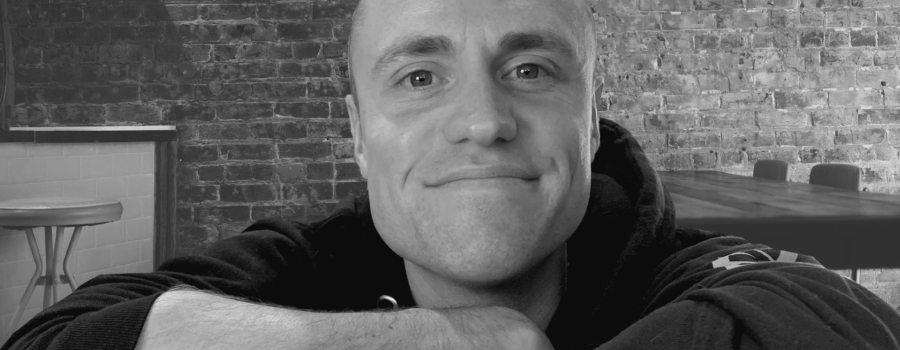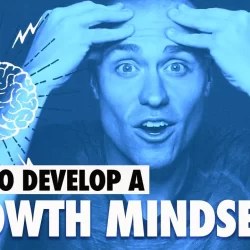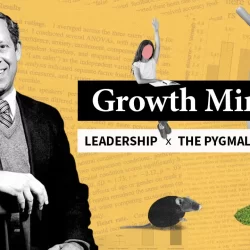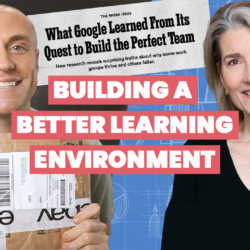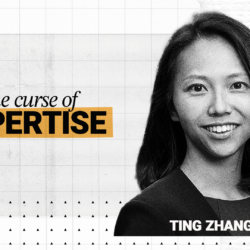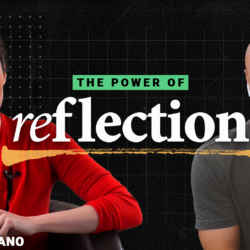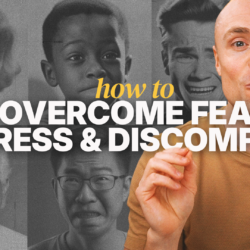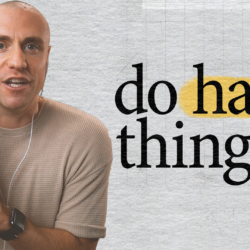On May 24, 2019 I found out I had bladder cancer.
Yeah, WTF? Even the doctor was surprised when he found the tumor. It’s super rare, especially for nonsmokers, especially for people my age.
So far I’ve actually been really lucky. The doctors were able to remove the tumor. There has been no need for chemo or radiation, and the tumor was noninvasive so I haven’t needed further treatment. I’ve had a few clear scans under my belt since then, and while we’ll have to stay on top of it moving forward, it looks like everything is going to be okay.
Despite the good fortune, this has been really hard and scary. After almost two years of processing, I’m in a place where I can share a few of the biggest lessons this experience has clarified for me.
Lesson 1: Toxic positivity is a thing
It started with a nurse in the room when they found the tumor. He immediately tried to comfort me by saying: “Keep your chin up. You’re young and this will be no big deal at all. You’ll be totally fine.”
On the surface this seemed uplifting. But as the doctor later explained, there was no way to know how serious this was until they scanned the rest of my body for more cancer and removed the tumor for testing. It would be a few weeks before we knew my prognosis.
Also, “this is no big deal” didn’t quite sit right during the scariest moment of my life.
I did this to myself as well.
After a couple documentaries and conversations with my friends, I felt like maintaining a positive attitude at all times would be essential in this battle. Every time I started to feel real emotions, I’d try to find gratitude instead. This seemed effective, but what I was really doing was refusing to let myself feel any pain.
I remember lying in bed feeling scared and anxious for my upcoming surgery and the test results we’d be getting. But in a way I was even more worried about letting myself feel scared and anxious. I became terrified of the tough emotions. I felt like I had to stay positive at all times, or I’d make the cancer worse.
I used every trick in the book to avoid feeling tough emotions. My most common tools:
Distraction – inventing projects to take my mind off the situation. I literally built a new website during the two-week waiting period between the diagnosis and my surgery.
Minimizing the situation – “This could be worse, so it’s actually not a big deal at all.”
Demonizing the tough emotions – Fear, anger, sadness = bad, wrong
Luckily for me, my therapist was able to nudge me in a better direction.
During my first session after receiving the news, I was sitting on her couch using my trusty tactics.
“They said bladder cancer has a low mortality rate and the tumor was small so it will probably be no big deal. It could definitely be way worse. So I guess I shouldn’t feel too bad about it…”
She cut me off. “Trevor, you have cancer. This is huge and this is scary. Of course it could be worse, but this is a big deal. We should never try to compare away our pain. Hard is hard. And it’s okay to feel that.”
A tear streamed down my cheek. But I cut it off with more positivity and suppression.
“Right but I’ve seen a lot of information about how feeling stressed can have a negative impact on my health.”
She replied, “Of course chronic stress and depression are serious and can cause problems. But feeling the emotions every once in a while is human, normal, expected, and healthy.”
Therapy and reading (book list linked below) helped me learn to acknowledge and accept my emotions. And this was an absolute game changer.
I allowed myself to cry at night. To lie awake afraid. And when I stopped trying to control how I felt all the time, when I stopped fearing my tough emotions, I started to feel more free and actually spent less time feeling stressed.
To be clear: there’s nothing wrong with gratitude and a positive attitude. But these become problematic when we’re using them to create an unrealistic standard and as tools to deny or avoid feeling our tough emotions.
Susan David and Brené Brown nail this:
(full episode here)The opposite of toxic positivity is compassion and empathy – acknowledging the problem and all the tough emotions it creates.
During my first appointment at the Mayo Clinic, my doctor walks in the room, sits next to me and goes:
“This is so hard and this is scary. I’m so sorry that you’re having to deal with this. I’m on your team and will do everything I can to help you through this.”
This was the complete opposite approach of the nurse from Denver. He didn’t minimize the situation or ignore the difficulty. He called it out and acknowledged how scary it was.
It felt so good to feel seen.
We can all use this approach in our conversations.
Lesson 2: The meaning of meaning
Another thing I knew was that to become more resilient, it’s important to find meaning during difficult times.
However, just like with positivity, I was a bit off with my interpretation.
For the entire first year after receiving the news I was beating my head against the wall looking for meaning. Why did this happen? What does it mean? What did I do to cause this?
But then I read Man’s Search for Meaning by Viktor Frankl and Finding Meaning by David Kessler and realized that I was aiming at the wrong target.
For big challenges like this (sickness, death, loss), finding meaning isn’t about figuring out why it happened because oftentimes that’s an answer we’ll never know.
Finding meaning is more about looking at the present and future, about how the situation is changing us and how we can focus on and appreciate that moving forward.
This helped me a ton.
I eat pretty well, don’t smoke, am not over 65 years old, and even genetic tests didn’t provide answers. The bottom line is I’ll never know why I got cancer. But by recalibrating my definition of meaning, I can now focus more on how this situation is helping me grow, not trying to guess why it happened.
Rather than asking: Why did I get bladder cancer? I can spend more time asking: what is this teaching me?
Of course, depending on the situation, we can sometimes do a little forensics to figure out how our decisions and actions affect an outcome and we can learn from these things. Yet even in those situations, it’s beneficial to focus our energy on the response and how we can grow moving forward.
Because of my experience, I’m a better teacher and better person. And by focusing on my response, I can create even more meaning moving forward. This doesn’t guarantee that my next scan comes back clear, but it does influence how this experience shapes me.
And I can do all this while allowing myself to feel all of my emotions.
Keep in mind: meaning doesn’t have to be something grand like I’m going to use this to change the world. And it doesn’t have to be set in stone.
For me, some days meaning is being able to connect with a struggling student. Sometimes it’s finding ways to embed these lessons into our workshops. Sometimes it’s looking down at my tattoo (05-24-19) and reminding myself to spend time on the things that matter the most. And right now, meaning is writing and sharing this article.
Lesson 3: Go to the doctor
Stay on top of your health stuff. And if something is weird, go see a doctor.
Lesson 4: You’re gonna die
This quote attributed to Confucius pretty much sums it up:
“We have two lives, and the second begins when we realize we only have one.”
——
These books have helped me the most:
Healing Through the Dark Emotions: The Wisdom of Grief, Fear, and Despair by Miriam Greenspan
Emotional Agility by Susan David
Permission to Feel by Marc Brackett
Rising Strong by Brené Brown
Man’s Search for Meaning by Viktor Frankl
Finding Meaning by David Kessler

